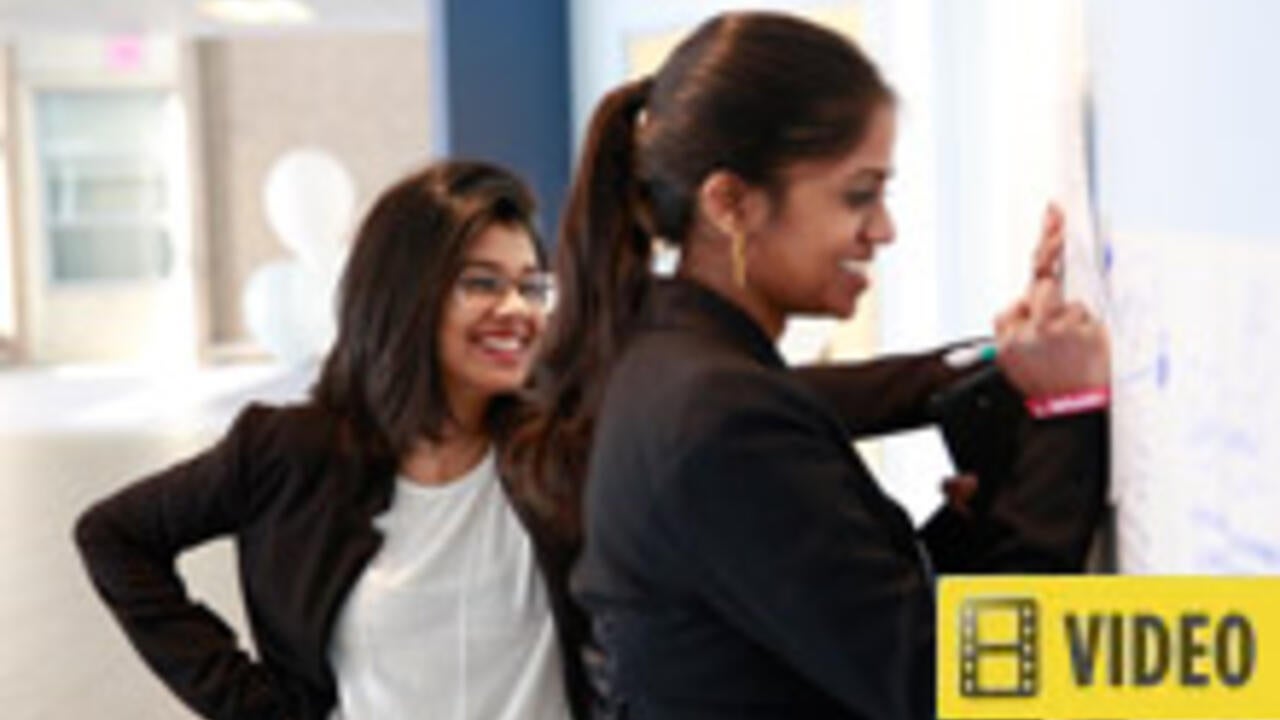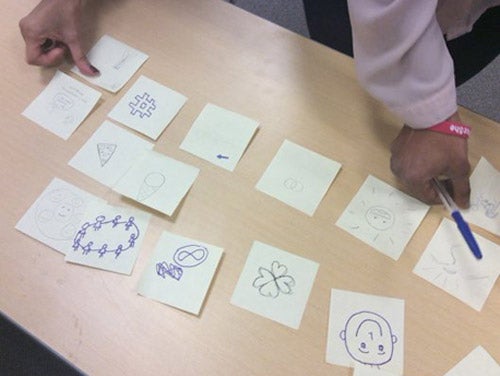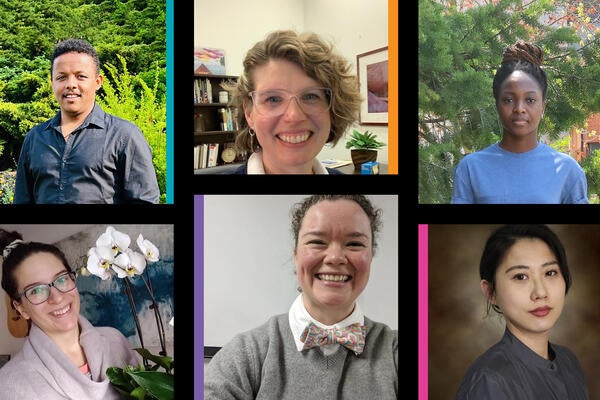
Three steps for creating innovations that matter
Waterloo user design expert speaks at the Waterloo Women: Ideas, Makers, Innovators Ideathon

Waterloo user design expert speaks at the Waterloo Women: Ideas, Makers, Innovators Ideathon
By Katrina Schigas Marketing and Strategic CommunicationsHow can innovators and entrepreneurs create meaningful solutions to help people achieve their goals without roadblocks? Part of the answer is collaboration, saying yes, and lots of sticky notes, according to Karin Schmidlin of Waterloo’s Conrad Business, Entrepreneurship, and Technology Centre.
Humans are hardwired to take shortcuts in everything we do and strive to make daily tasks as easy as possible. Although we have systems that allow us to get our jobs done, we don’t love using them. Drawing on her background in user experience design, Schmidlin shared her tools and methods at an Innovative Problem Solving workshop as part of the Waterloo Women: Ideas, Makers, Innovators Ideathon, held March 5 and 6 in the Science Teaching Complex. The two-day event brought together women from across disciplines to connect, inspire, and explore their potential.
Schmidlin shared three main steps to coming up with needs-based solutions to everyday problems:
“The first law when identifying a problem is never assume.”
Understanding the audience you are designing for is key to supplying people with the solution they need, says Schmidlin. Don’t assume you know the individual circumstances of your users. Surveys and self-reporting are a useful part of identifying these needs, but they cannot stand alone. “Don’t believe what people say; watch what they do,” she says. When conducting surveys, fill information gaps with action-based observations.
“Always think bigger. Even if you have a solution, ask yourself, ‘how can we make this more important?’” says Schmidlin. “Be open to making it even bigger and more powerful.”
More often than not, the best ideas are developed by building on existing ideas, so be open to incorporating all suggestions even if you already have an idea. Saying ‘no’ will block your ideas and limit your ability to go further. Schmidlin suggests that, when working in teams, always respond to your teammates with “Yes, and…” to keep the idea generation flowing.
“Sketch your ideas out and, most importantly, give everyone a pen,” says Schmidlin. “Whoever owns the pen owns the power, and you need to hear every team member’s voice.”
Ideas come when you’re inspired, Schmidlin notes, not when you’ve given yourself a ten-minute timeframe to come up with one. Rather than limiting yourself with words on a laptop screen, draw your idea on a sticky note and post it on the wall – standing up and moving your body will help get the ideas out of your head. Take advantage of the diversity within your team by making sure everybody has a chance to contribute. “Don’t worry if you think you can’t draw – anyone can do it,” she says.

Participants use sketches on sticky notes to redesign the symbol for "love" during Schmidlin's Innovative Problem Solving workshop
Throughout the weekend, attendees participated in hands-on workshops, received advice from mentors, and heard from a number of inspiring speakers including
The weekend concluded with an idea fair, where judges selected the top ten ideas to participate in a final pitch competition. All ten finalists won a startup coaching and mentorship brunch with Brendan Wylie-Toal and Elle Crevits hosted by St. Paul’s GreenHouse. Additional prizes of $300 each were awarded to the top ideathon winners:
See more highlights from the weekend by checking out #WIMIn2016.

Read more
Here are the people and events behind some of this year’s most compelling Waterloo stories

Read more
Kicking off Global Entrepreneurship Week by looking at some Waterloo founded companies making a global impact

Read more
Waterloo recognizes six PhD students for earning the highest academic status within their faculty and their innovative research
The University of Waterloo acknowledges that much of our work takes place on the traditional territory of the Neutral, Anishinaabeg and Haudenosaunee peoples. Our main campus is situated on the Haldimand Tract, the land granted to the Six Nations that includes six miles on each side of the Grand River. Our active work toward reconciliation takes place across our campuses through research, learning, teaching, and community building, and is co-ordinated within the Office of Indigenous Relations.